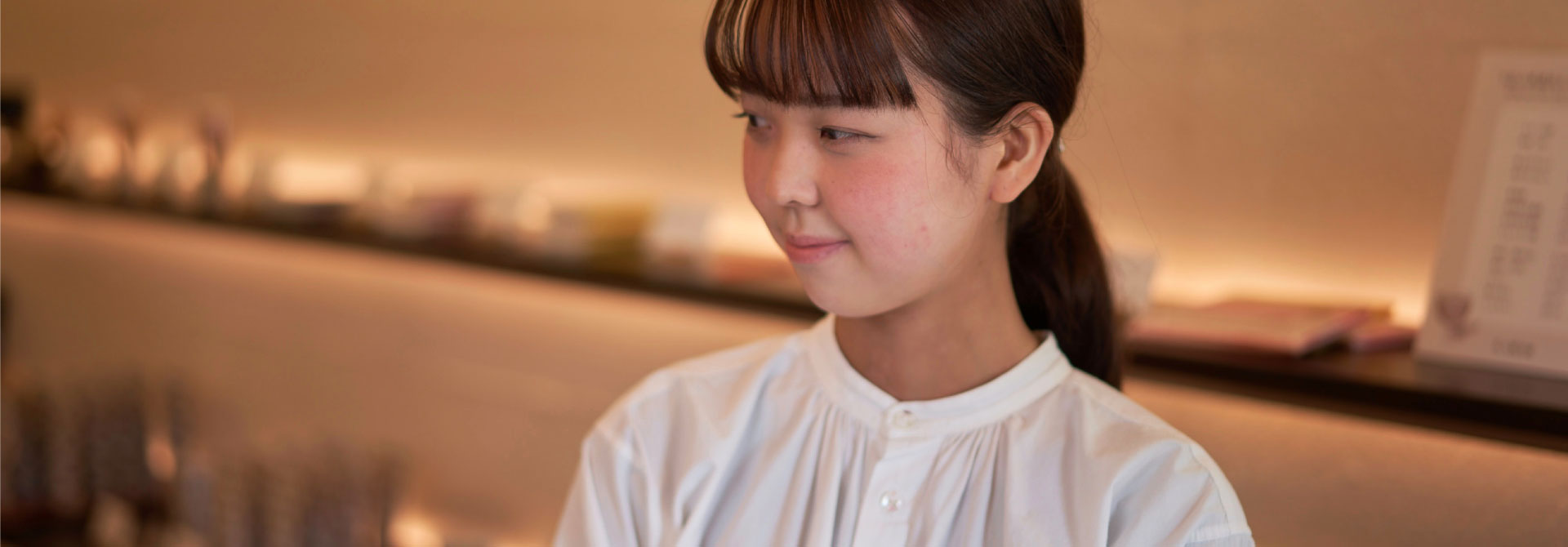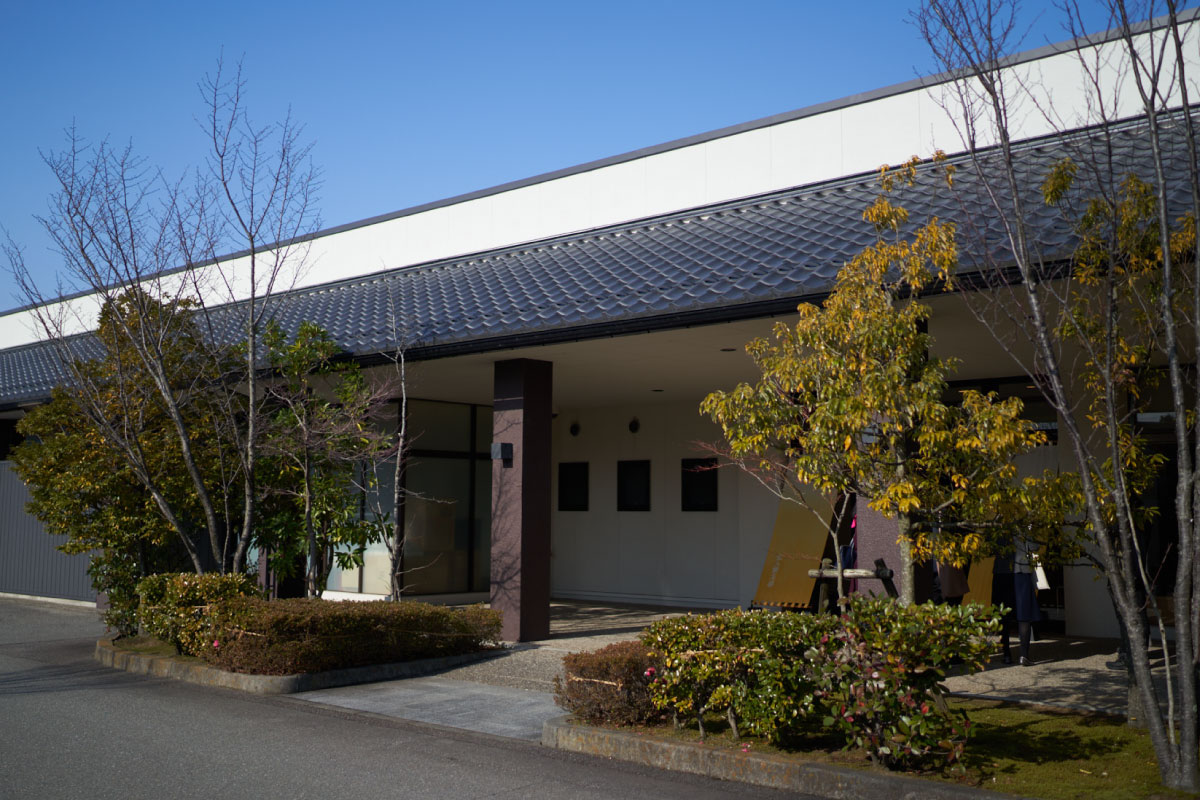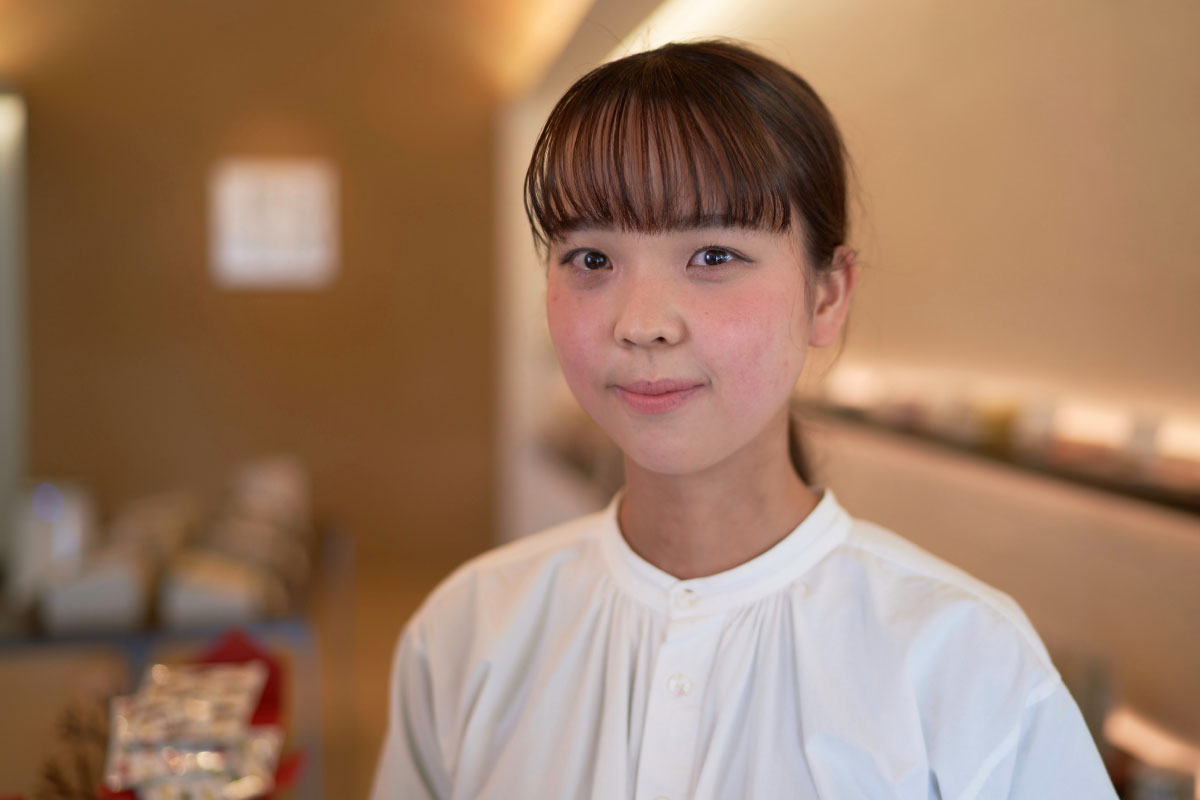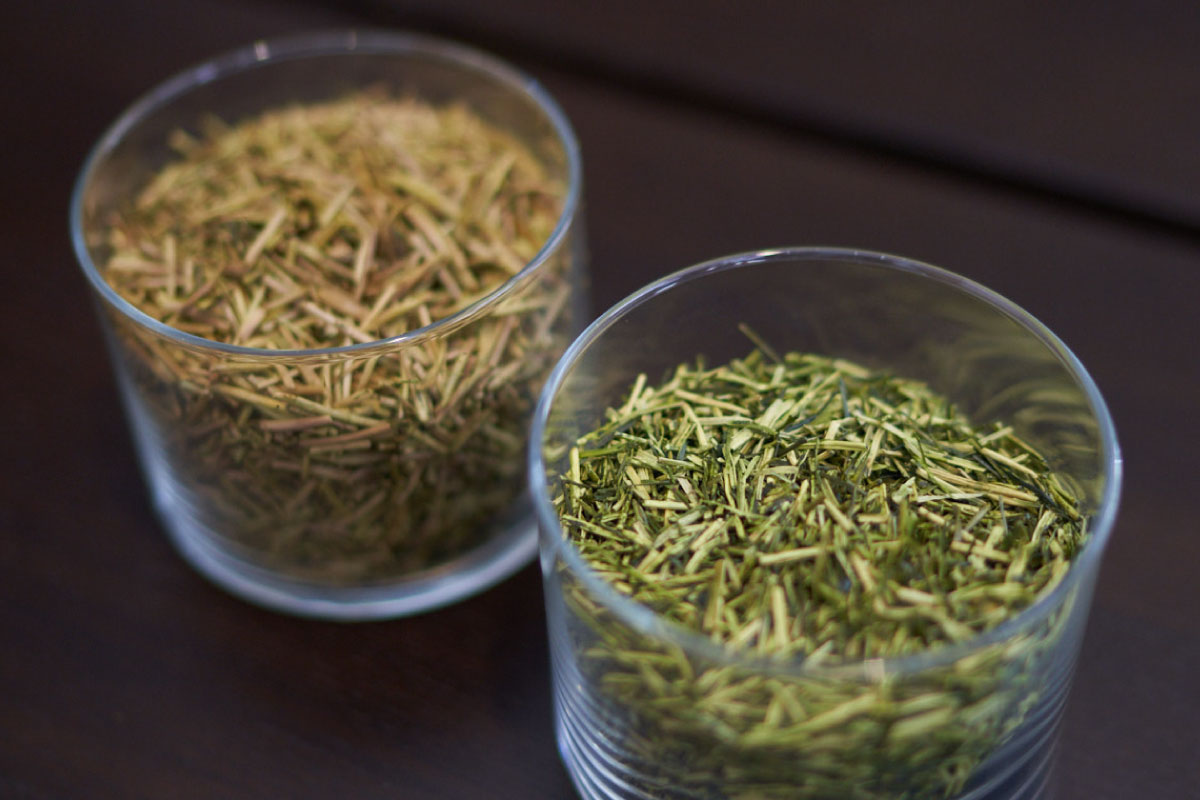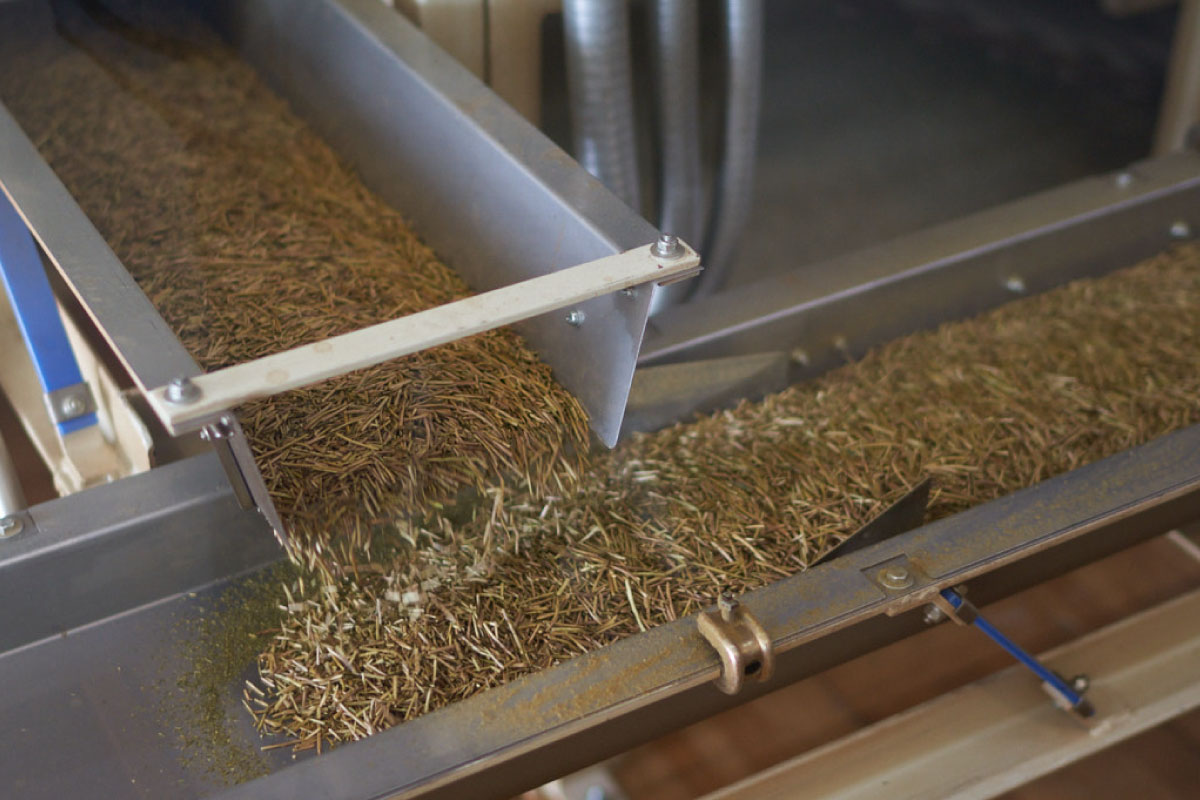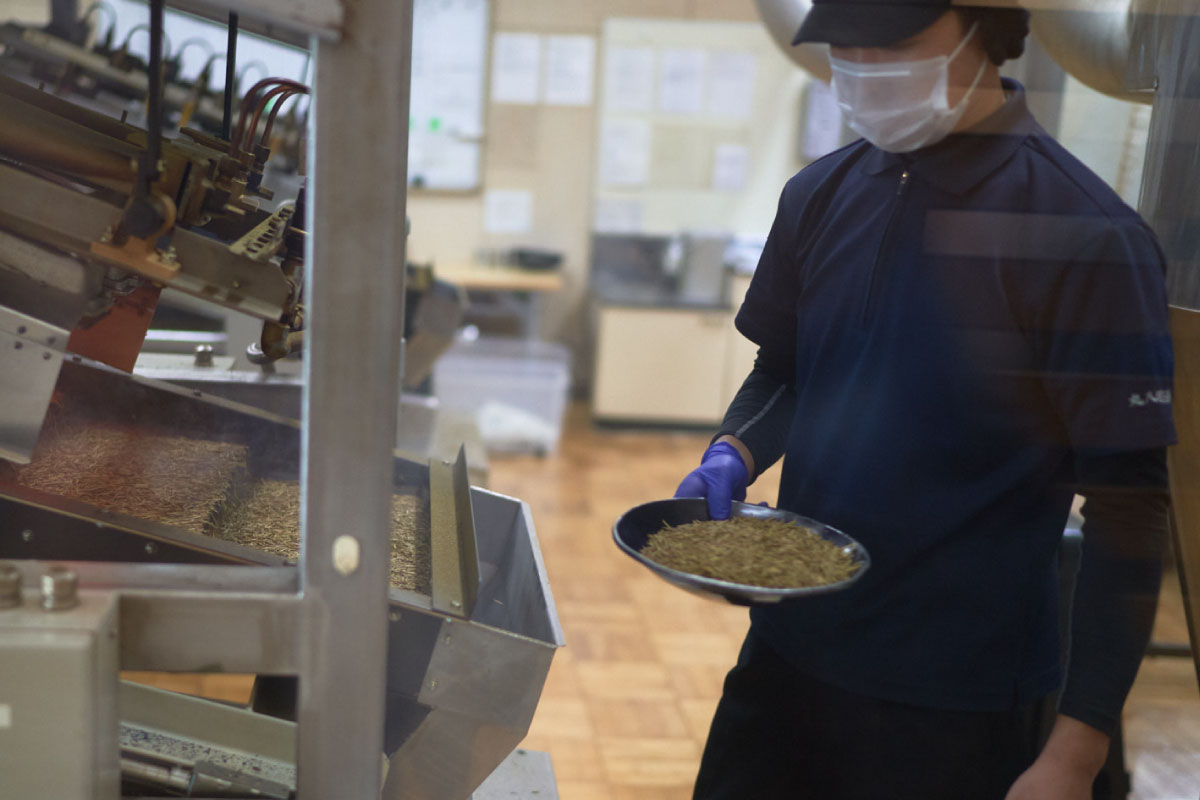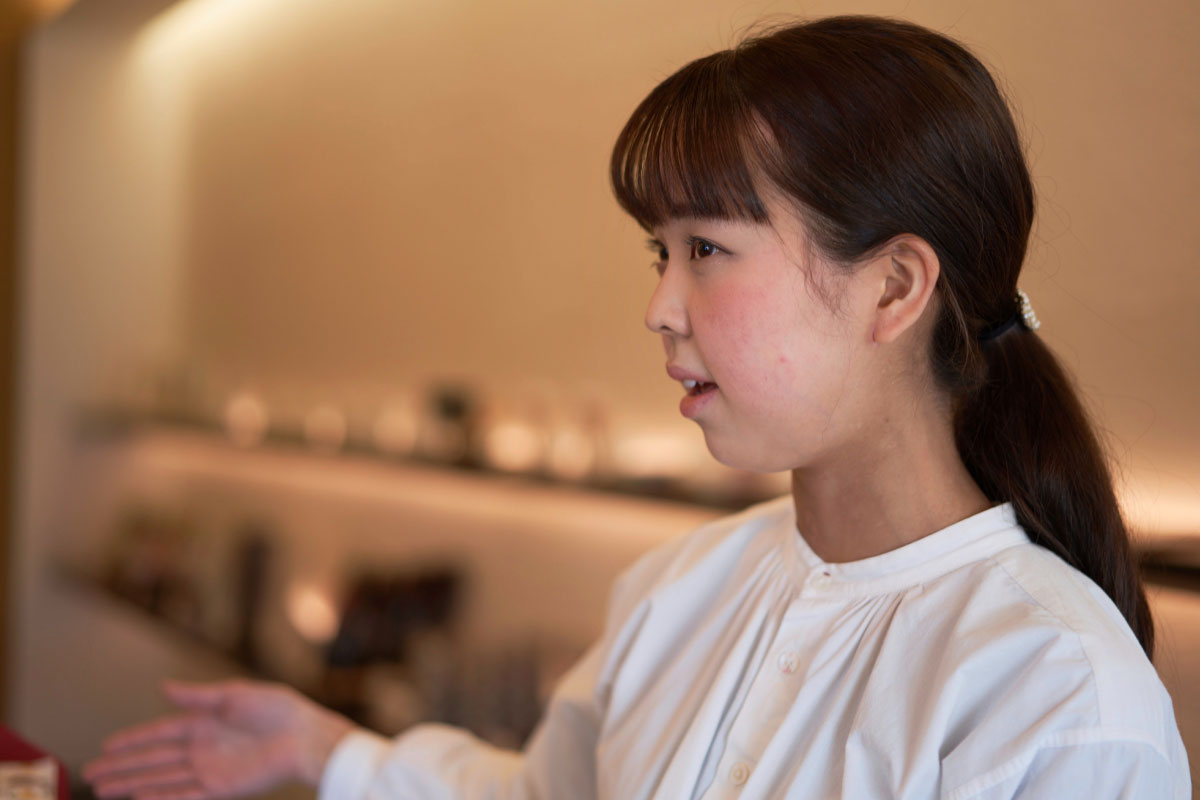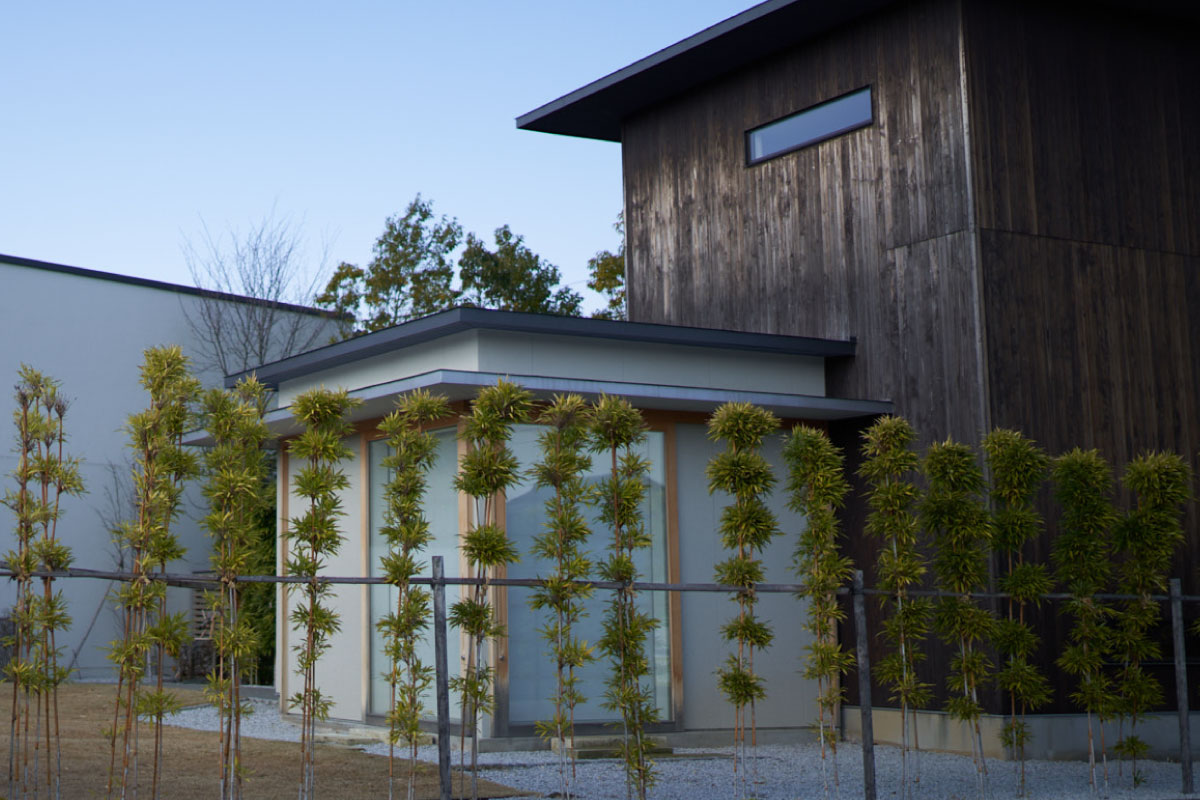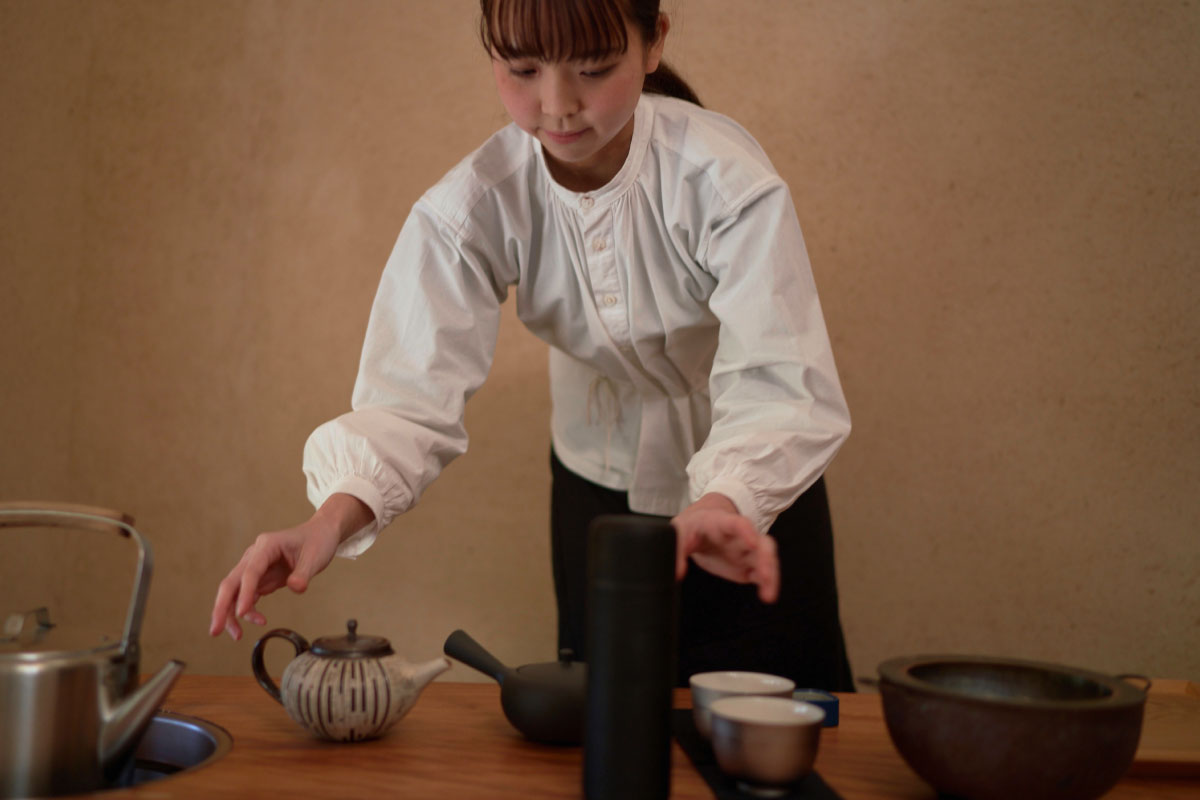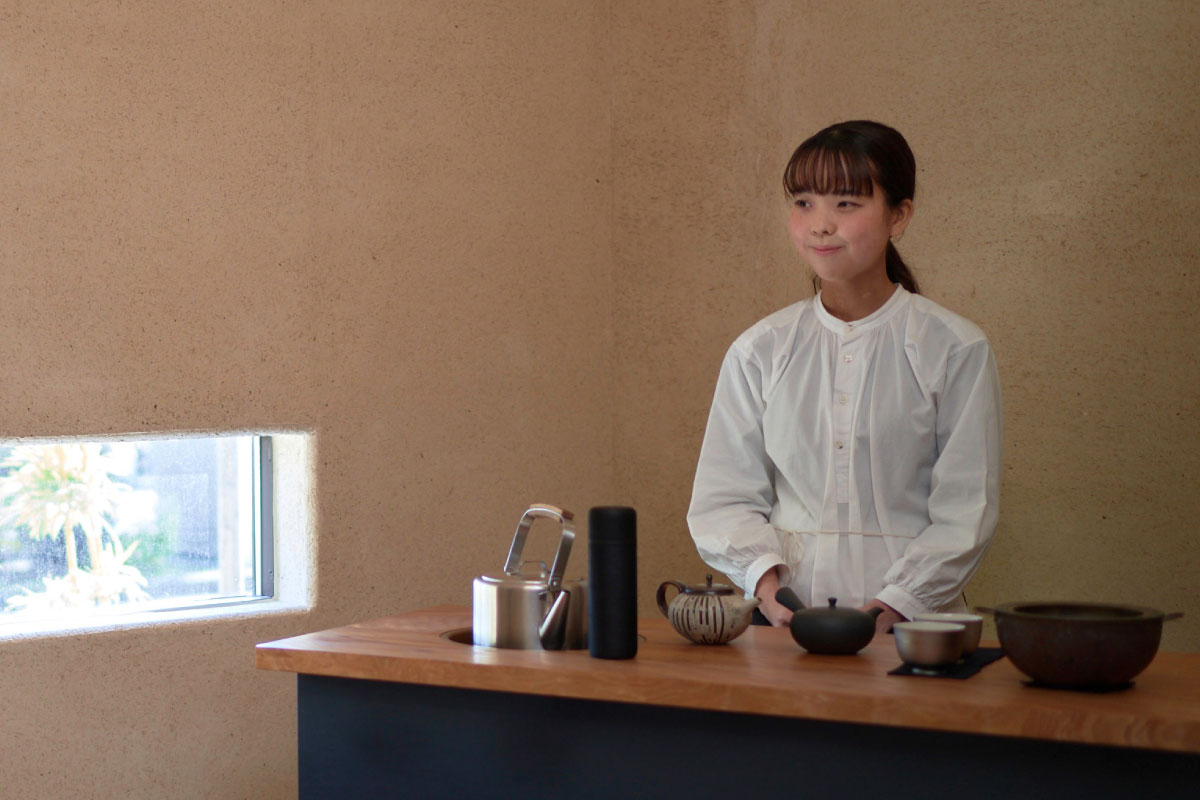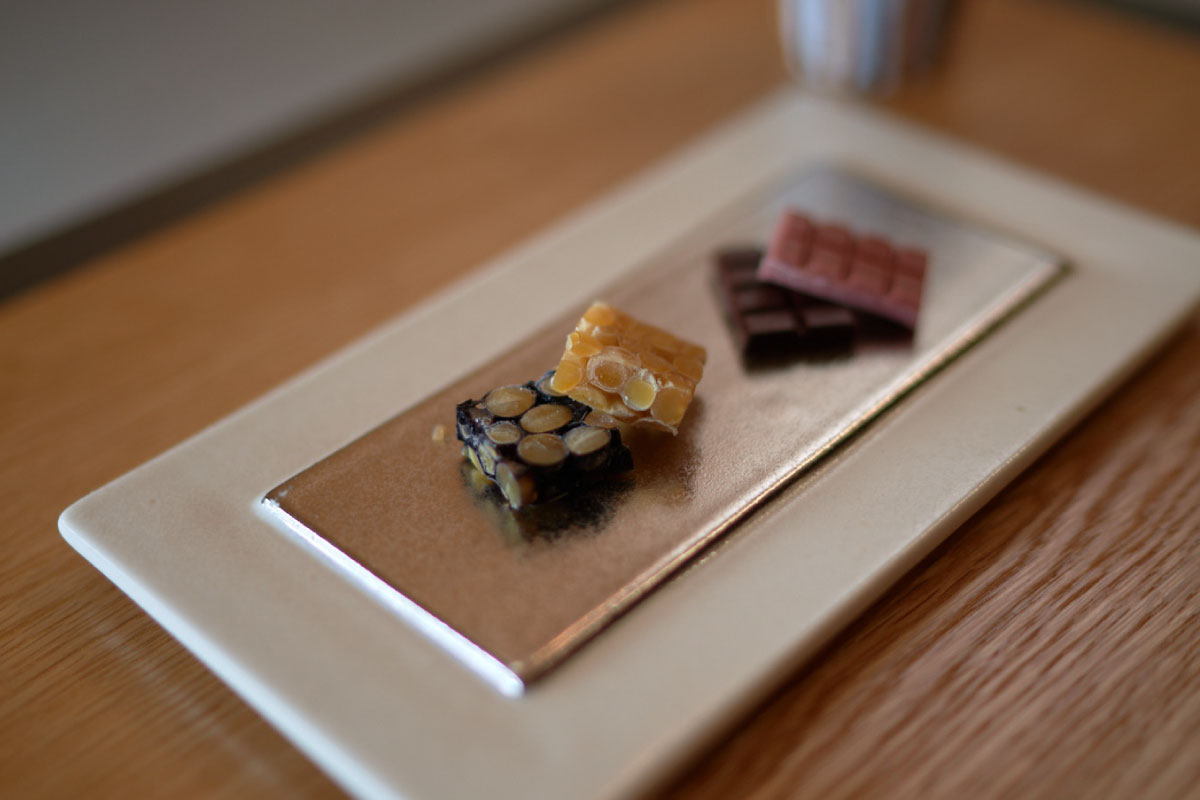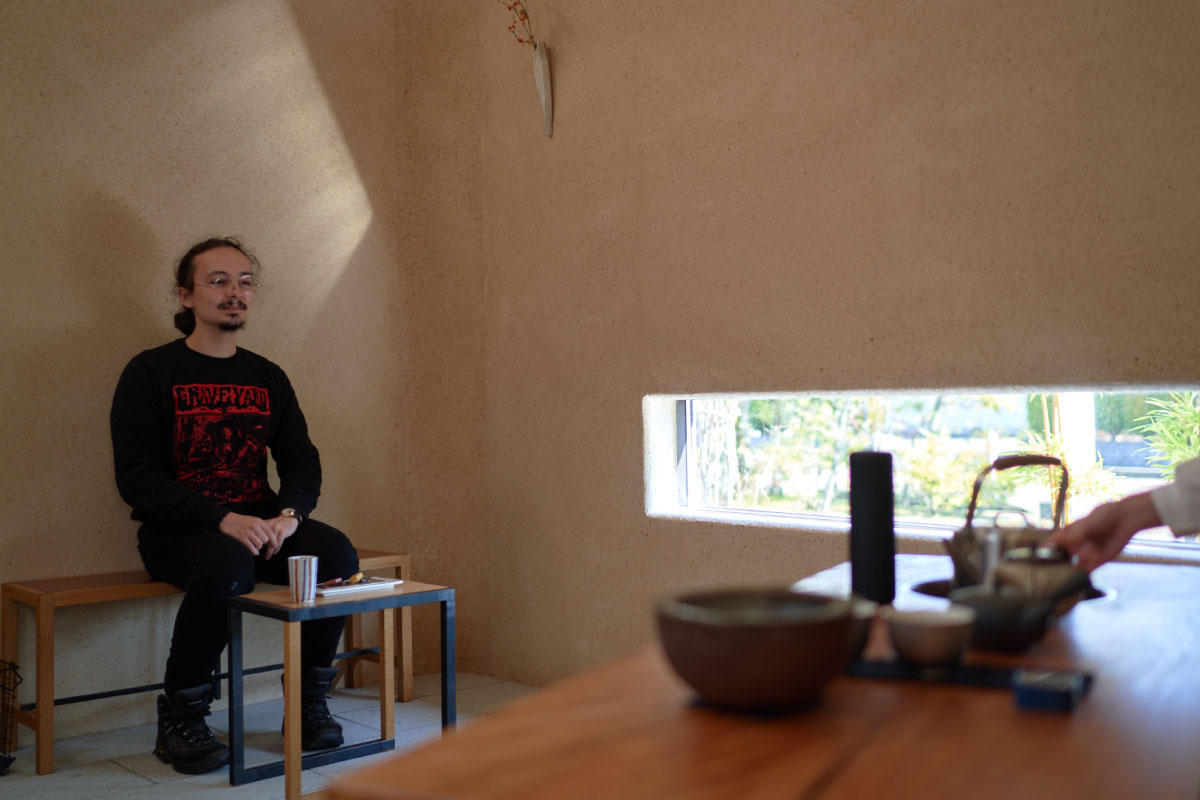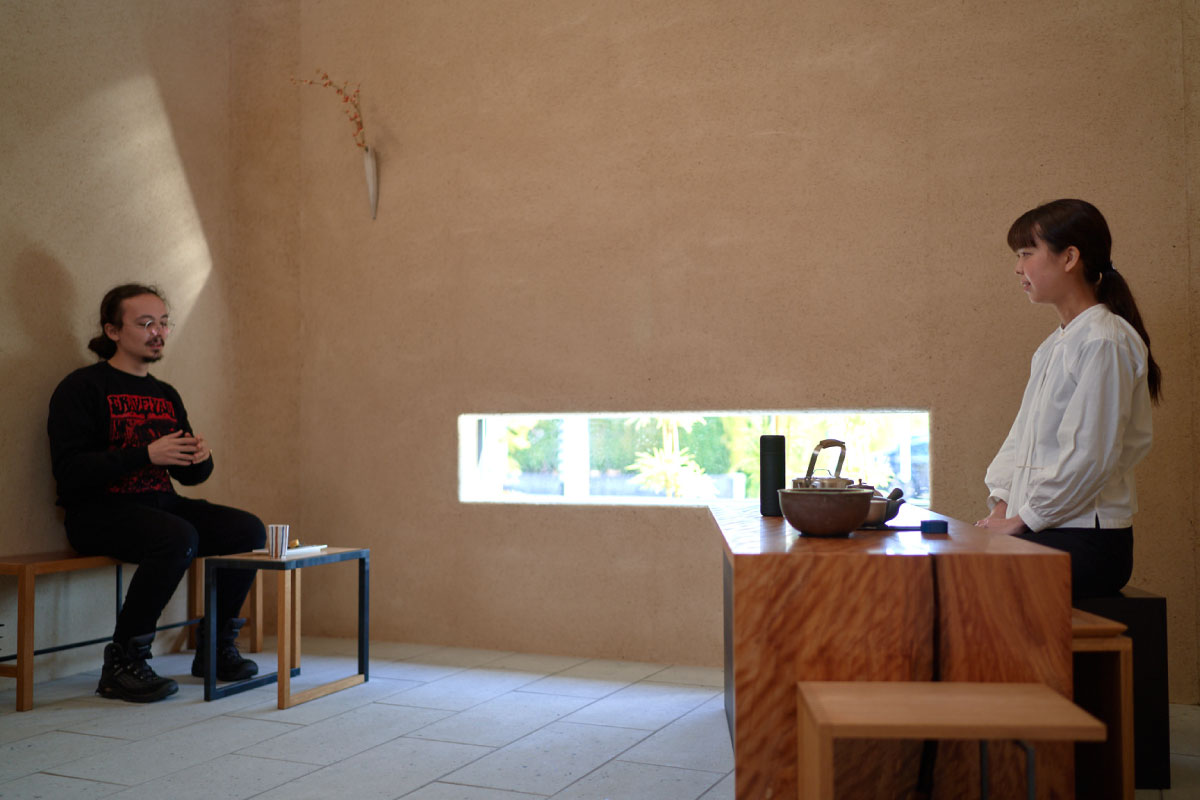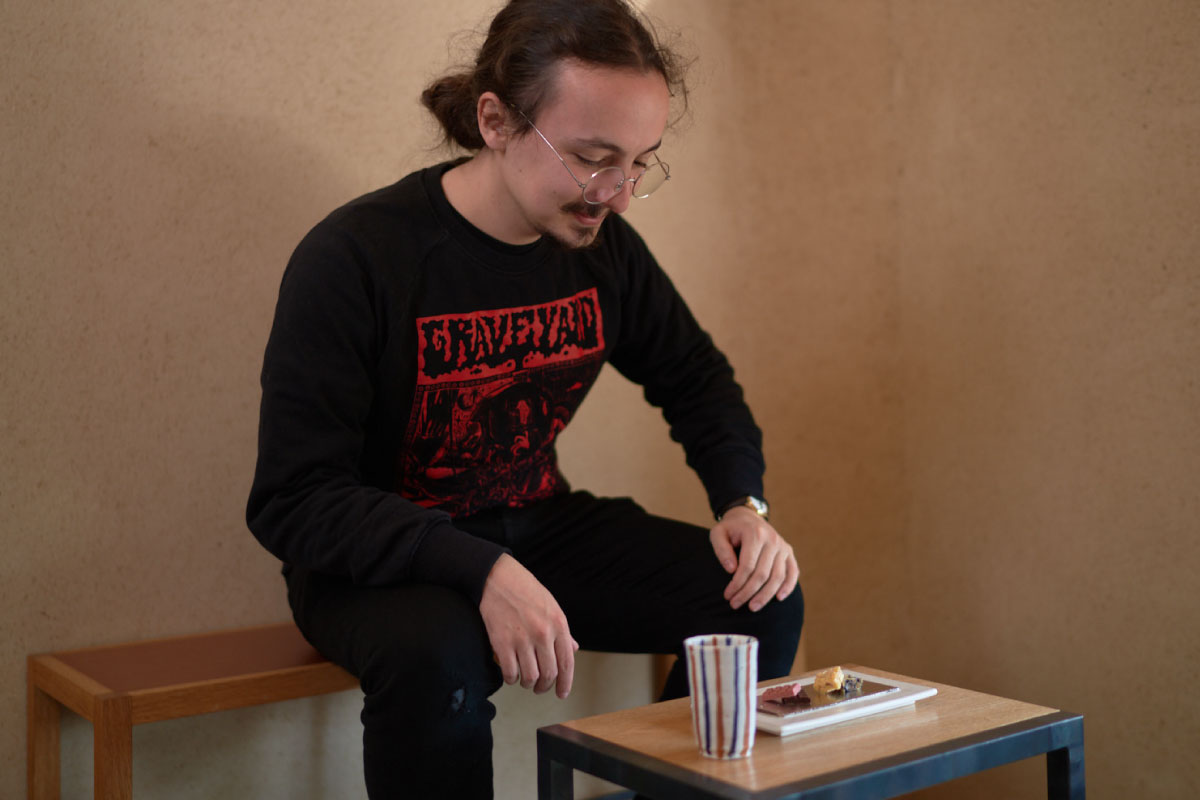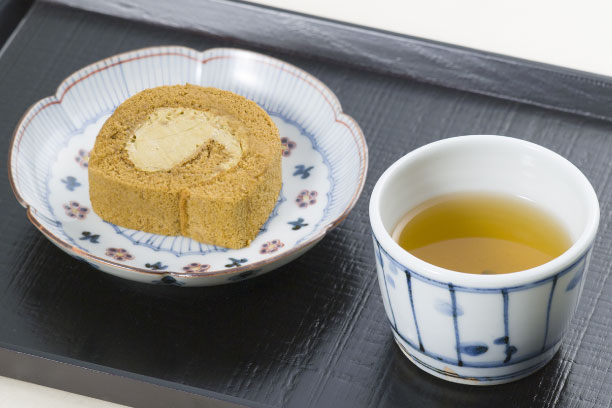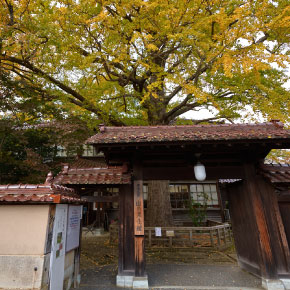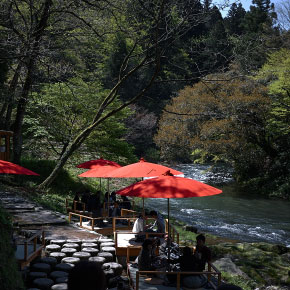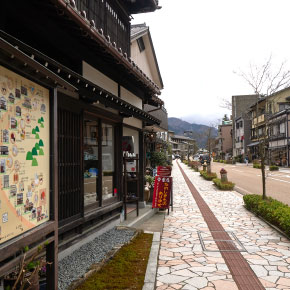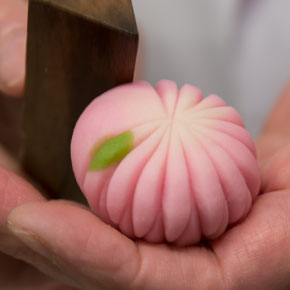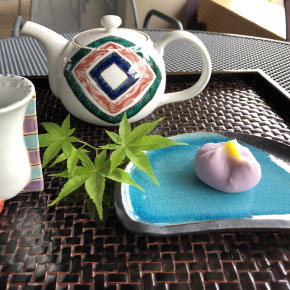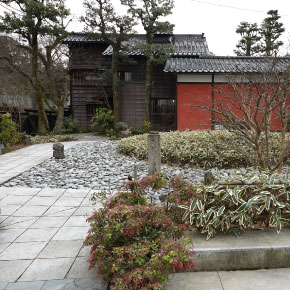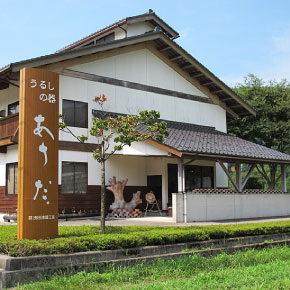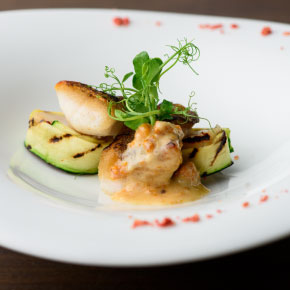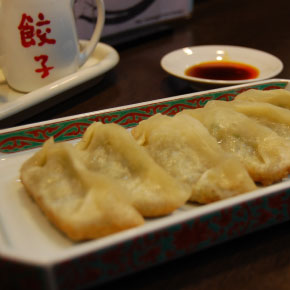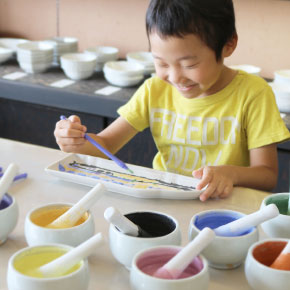Steeped in Tradition
Rooted in Ishikawa’s tea culture dating back to the beginning of the Edo period, the traditional tea manufacturer Maruhachi Seichajō and its iconic Kaga Bōcha have become an essential part of the prefecture’s culinary landscape. Going back almost 160 years and six generations, the family-led company has created a modern image for this classic roasted tea from Kaga, and roasts up to 400 kg of tea every day when in high season. In 1983, the company presented a specially refined hōjicha, made from the stems of the year’s first plucking of leaves, to the Shōwa Emperor. As he took a liking to it, the company’s tea became highly acclaimed nationwide, though it is still considered an everyday drink in the region.
The Potential of Everyday Tea
Born in 1998, FUETA Kaori is the manager of Mishō, the shop attached to the headquarters and factory that Maruhachi Seichajō established in 2003. She became interested in tea during a work experience at Maruhachi Seichajō in her high school years and now leads interested guests and clients through the factory, explaining every step of the process from raw tea to finished product with great passion. Since joining the company around 5 years ago, her curiosity for hōjicha has grown gradually, and she now aims to convey the potential and depth the seemingly simple tea holds.
Not unlike coffee or wine, the flavour of roasted teas varies greatly with the quality of the leaves and stems, the intensity of roasting and the way it is steeped. Where Maruhachi Seichajō’s main product, the Kenjō Kaga Bōcha, maintains the aroma of the carefully selected green teas through a careful, light roast, their other product Botto!, launched in 2020, presents a deeper, darker roasted palette of flavours.
She feels that everyone can find a way to enjoy hōjicha—be it casually, by drinking a mug with a tea bag, or taking the time to drink a couple of infusions made in their favourite tea pots and cups—and that tea doesn’t have to be a bland, old-fashioned drink. For FUETA, the potential of hōjicha offers endless exploration and at the same time the simple act of drinking tea creates time for oneself, relaxation and refreshment, a feeling she wants to show to her guests as well.
Room to Explore
Maruhachi Seichajō’s headquarters hosts not only the factory and the shop Mishō, which sells products and serves customers at its cafe, but also a gallery space for local artists and craftsmen, supporting the region. There is also a modern teahouse that opened in 2019. The Sōgakuken consists of two rooms: one with a modern counter space made in the image of a laboratory, with a small tea-roasting machine where one can experience freshly-roasted teas, and the other being an actual, stone-floored tearoom equipped with tables and benches where Hōjicha Course experiences are held.
Unlike more traditional teahouses in which matcha is prepared and drank, it has a light, open and welcoming atmosphere, making it easy to enter, especially as guests do not have to sit on the floor or know complicated mannerisms. Here, one can not only experience the appeal of local crafts and Maruhachi Seichajō’s teas, but also escape the troubles of everyday life and relax for a time. One of the original appeals of Japanese tea culture.
